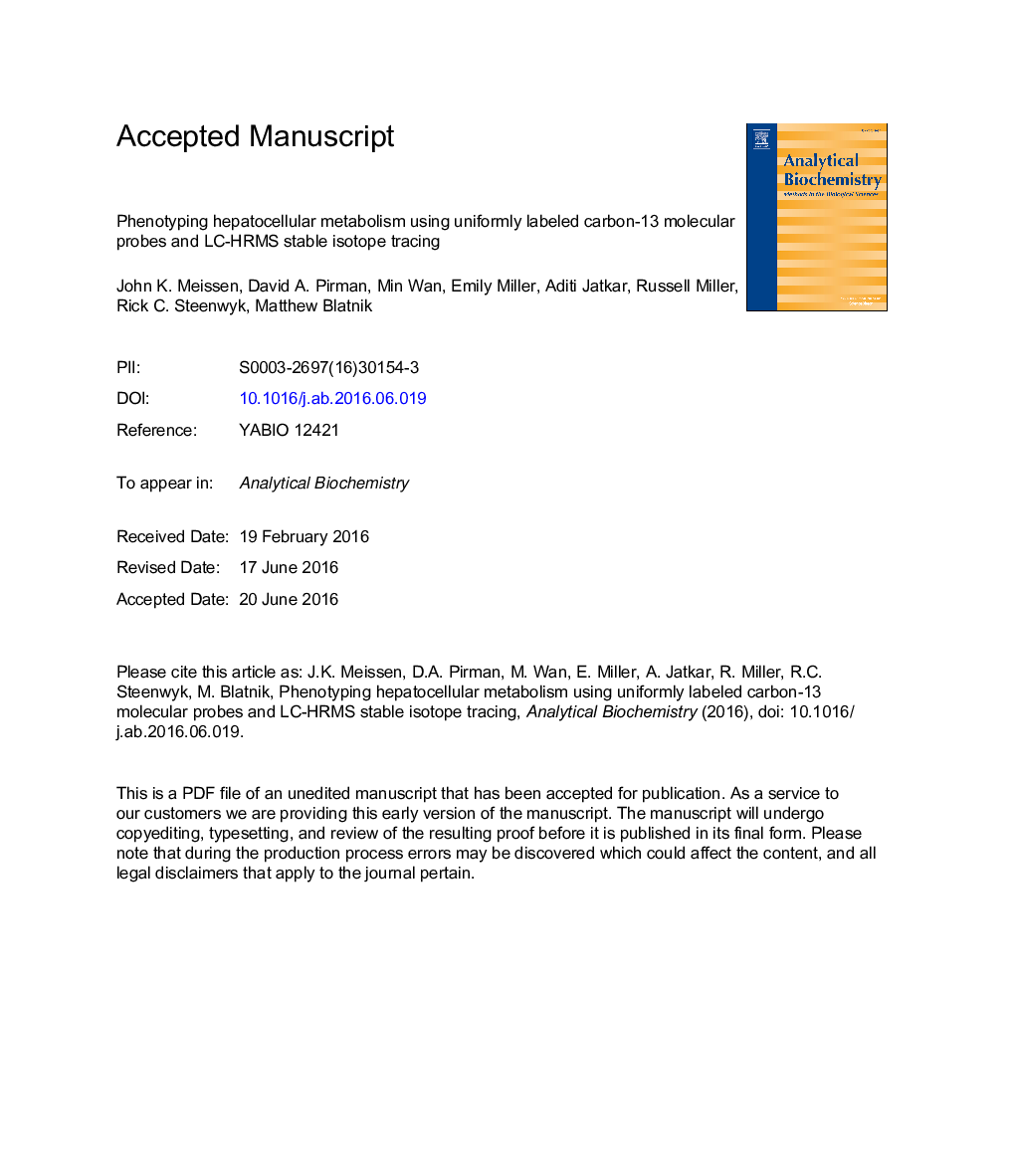| Article ID | Journal | Published Year | Pages | File Type |
|---|---|---|---|---|
| 7557506 | Analytical Biochemistry | 2016 | 18 Pages |
Abstract
Metabolite stable isotope tracing is a powerful bioanalytical strategy that has the potential to unravel phenotypic markers of early pharmaceutical efficacy by monitoring enzymatic incorporation of carbon-13 atoms into targeted pathways over time. The practice of probing biological systems with carbon-13 labeled molecules using broad MS-based screens has been utilized for many years in academic laboratories but has had limited application in the pharmaceutical R&D environment. The goal of this work was to establish a LCMS analytical workflow that was capable of monitoring carbon-13 isotope changes in glycolysis, the TCA and urea cycles, and non-essential amino acid metabolism. This work applies a standardized protein precipitation with 80% cold methanol and two distinct reverse-phase ion-pair liquid chromatography methods coupled to either a positive- or negative-ion mode high-resolution accurate mass spectrometry screening method. The data herein combines thousands of single-point peak integrations into a novel metabolite network map as a visualization aid to probe and monitor stable isotope incorporation in murine hepatocytes using uniformly labeled 13C6 glucose, 13C3 lactate, and 13C5 glutamine. This work also demonstrates that nitrogen metabolism may have a large influence on the TCA cycle and gluconeogenic carbon fluxes in hepatocyte cell culture.
Keywords
TBAF1,6BPF1PG1PTributylamineUDP-GlcCytoscapeHigh resolution mass spectrometry (HRMS)F6PαKGNFPAG6PPEPCKHRMSPEPα-ketoglutarateMetabolic fluxfructose-6-phosphatefructose-1-phosphatefructose-1,6-bisphosphatephosphoenolpyruvatephosphoenolpyruvate carboxykinaseMetabolomicsNitrogen metabolismCentral carbon metabolismglucose-1-phosphateglucose-6-phosphateUDP-glucose
Related Topics
Physical Sciences and Engineering
Chemistry
Analytical Chemistry
Authors
John K. Meissen, David A. Pirman, Min Wan, Emily Miller, Aditi Jatkar, Russell Miller, Rick C. Steenwyk, Matthew Blatnik,
